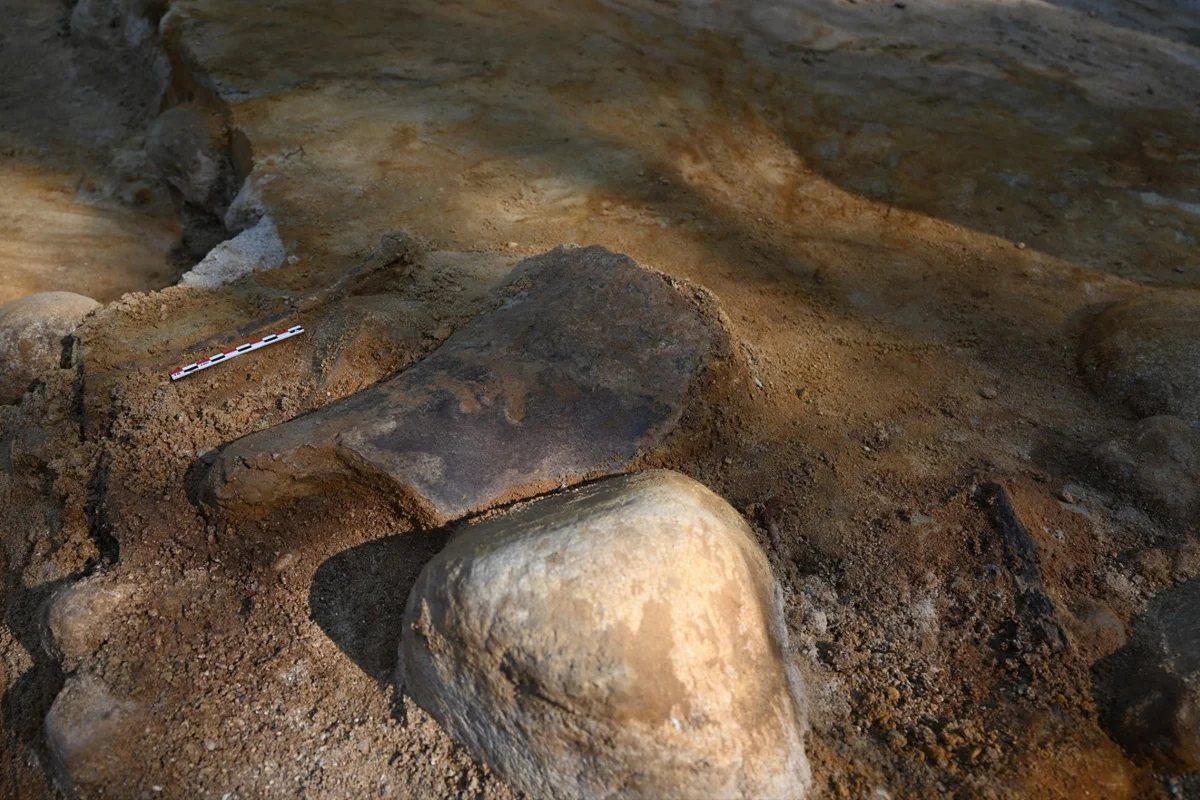A team of archaeologists from the State Archaeological Museum in Warsaw, the University of Warsaw, and the University of Wrocław, have unearthed an ancient Neanderthal workshop in Mazovia, Poland.
The discovery was made in the Zwoleńka River valley, revealing a workshop for lithic repair by Neanderthal populations 70,000 years ago.
According to experts, the workshop is the most northernmost open-air example found in Poland. Most Polish Neanderthal sites are located further south, in the Kraków-Częstochowa Upland and Lower Silesia, as central and northern Poland were once covered by glaciers.
“We managed to determine that Neanderthals were active in this region 64,000-75,000 years ago, i.e., during the Middle Palaeolithic. This is the only Middle Palaeolithic site in Poland where research is currently being conducted,” said Dr. Witold Grużdź from the PMA.
Excavations have found hundreds of flint tools and fragments, including knives and scrapers for processing the carcasses of mammoths, horses, and rhinos, alongside debris from toolmaking.
Dr. Katarzyna Pyżewicz from the University of Warsaw, said: “After successive seasons of research, we know that already finished tools were brought to the site and intensively repaired there. They wore out during the reactions associated with carcass butchering.”
Neanderthals, long stereotyped as primitive, are now seen as more advanced and closer to modern humans. Recent discoveries show they created art and even interbred with Homo sapiens, contributing to our genetic makeup today.
The Zwoleńka River site adds a valuable chapter to this evolving picture, offering a rare glimpse into the Ice Age ingenuity of our closest evolutionary relatives. Further research may continue to rewrite the story of human history in this region.
Header Image Credit : University of Warsaw
Sources : Science In Poland





